Professional ethics are at the core of the College of Health and Human Services (CHHS). The professions and schools that comprise the CHHS have an obligation to articulate the basic values, ethical principles, and ethical standards to the University Community. The CHHS has developed a Code of Professional Conduct that is relevant to all professionals as well as students who comprise the CHHS, regardless of their professional functions, the settings in which they work, or the populations they serve.
Because of the nature of the health and human services-related professions, it is virtually impossible to separate academic misconduct from professional or ethical misconduct, or to differentiate between the settings where misconduct may occur. And so with respect to this process all acts of misconduct are considered to be both academic and professional in nature. While the CHHS Code of Professional Conduct outlines many examples of misconduct that could lead to disciplinary procedures, that list is in no way exhaustive.
Disciplinary action and resulting sanctions imposed as a consequence of misconduct may be initiated by a faculty member or administrator at any level within the CHHS. Likewise, subsequent administrators or hearing boards within the CHHS hierarchy may recommend overturning, upholding, or adding additional sanctions. However, in order to insure that students have the benefit of due process, sanctions can be appealed as described later in this document. In the case of appeal of a sanction, the Dean’s decision is final. An appeal to the Vice Chancellor for Academic Affairs may be made only on the basis of procedural errors in the process.
The purpose of giving students a right of appeal is to allow them to bring to the attention of another authority on campus significant factual and procedural errors that reasonably may bear on the finding of misconduct or the sanction imposed. Students should NOT appeal misconduct findings for the purpose of delaying the process or the imposition of academic sanctions, or avoiding further sanctions that may be imposed.
The appeals process is laid out in Appendix A. Assumptions are:
- The disciplinary and appeals process is not a legal Accordingly, students may not be represented by legal counsel in these proceedings. Students may be accompanied by an advisor; however, the advisor may not speak for the student. A student’s failure or refusal to speak on his or her own behalf at a hearing shall not be considered an admission of responsibility.
- No sanctions shall become effective until after opportunities for appeal have been exhausted; however, when a student is found to have engaged in unprofessional or unsafe behavior at a clinical or internship site, or when a student poses serious threat of harm to self, others or property, then the student may be removed from the university or off- campus site
- A business day does not include weekends, official University holidays, or breaks. For instance, the days between the last day of final examinations of one term and the first day of classes of the following term are not considered business
- Notification of a decision “in writing” can include electronic (email) correspondence. Email correspondence with students will be through their official IU Northwest email account
- All allegations of or sanctions for misconduct will be reported to the program director, the Dean, and the Chair of the Professional Standards Board (all of whom may impose additional sanctions, whether or not the student appeals the original finding or sanction). The PSB will maintain a file in the central administrative area for tracking
- Sanctions that may be imposed as a result of a finding of misconduct can include one or more of the following:
- A lower or failing grade for any assignment(s) in which misconduct occurred
- A lower or failing grade for the course; the penalty for a serious act of academic misconduct ordinarily should involve the recording of a failing grade for the course
- Repeating the assignment(s) in which misconduct occurred
- Completing additional assignment(s)
- Required withdrawal from the course, with a grade of either “F” or “W” at the faculty member’s discretion, regardless of when during the semester the student withdraws from the
- Additional sanctions that may be imposed at any level above the level of the course faculty include:
- Disciplinary probation for a specified period of time;
- Suspension or deferred suspension from the program for a specified period of time; or
- Dismissal from the program and/or
- The CHHS hearing board for appeals is called the Professional Standards Board.
- The dean may maintain a standing Professional Standards Board or appoint a new board to hear each particular In either case, the members of the Board shall be chosen from a list of the School’s continuing full-time faculty, who are willing to serve and a list of students, who are willing to serve. Any members who are initially appointed and become unable to serve on the Board should be replaced by the dean by others from these lists.
- The Professional Standards Board will consist of six members (one from each academic unit represented in CHHS; units may select their representative by whatever means they deem appropriate) and one student. Only continuing full- time faculty are eligible to serve on the
- The presiding officer of the board is appointed by the dean and must be a member of the
- During the appeal process for academic or personal misconduct cases and grievances, the hearing will always remain under the control of the presiding
- The Vice Chancellors of Student Services Administration and Academic Affairs will be notified of the imposition of sanctions for misconduct, and the results of any
- Change of grade requests after the conclusion of a course are not covered by this process.
- A dispute of a performance-based grade unrelated to misconduct is not covered by this Those cases are appealed up the normal administrative chain.


